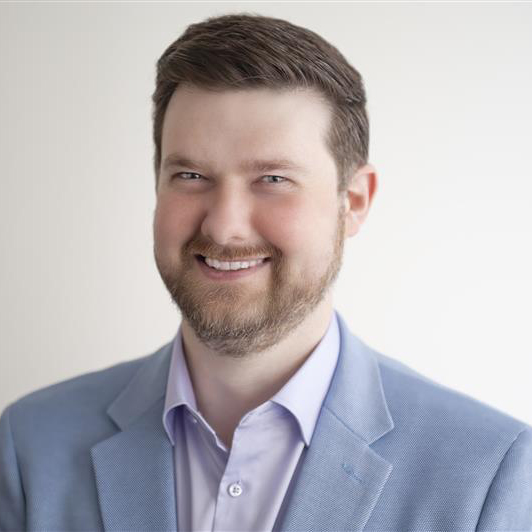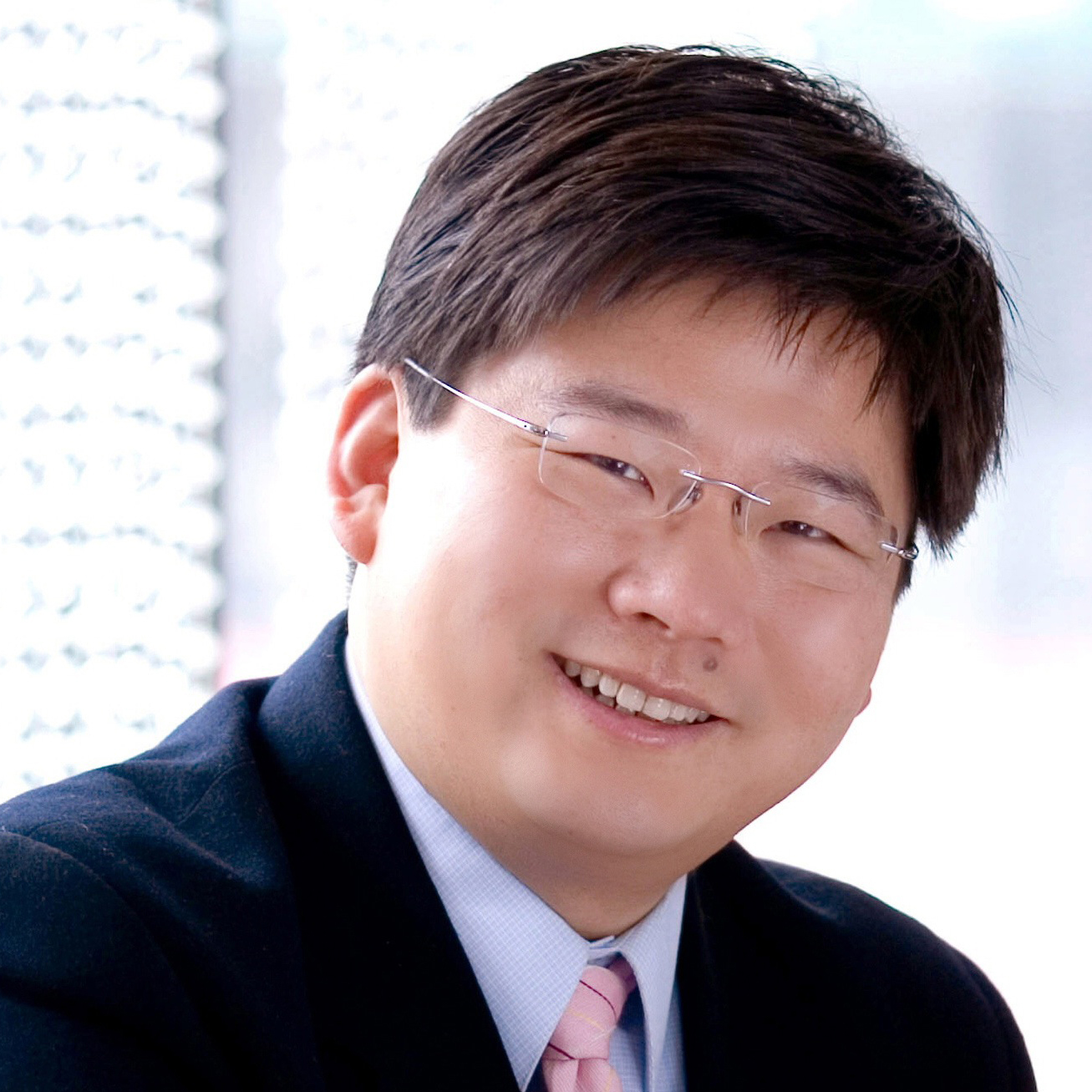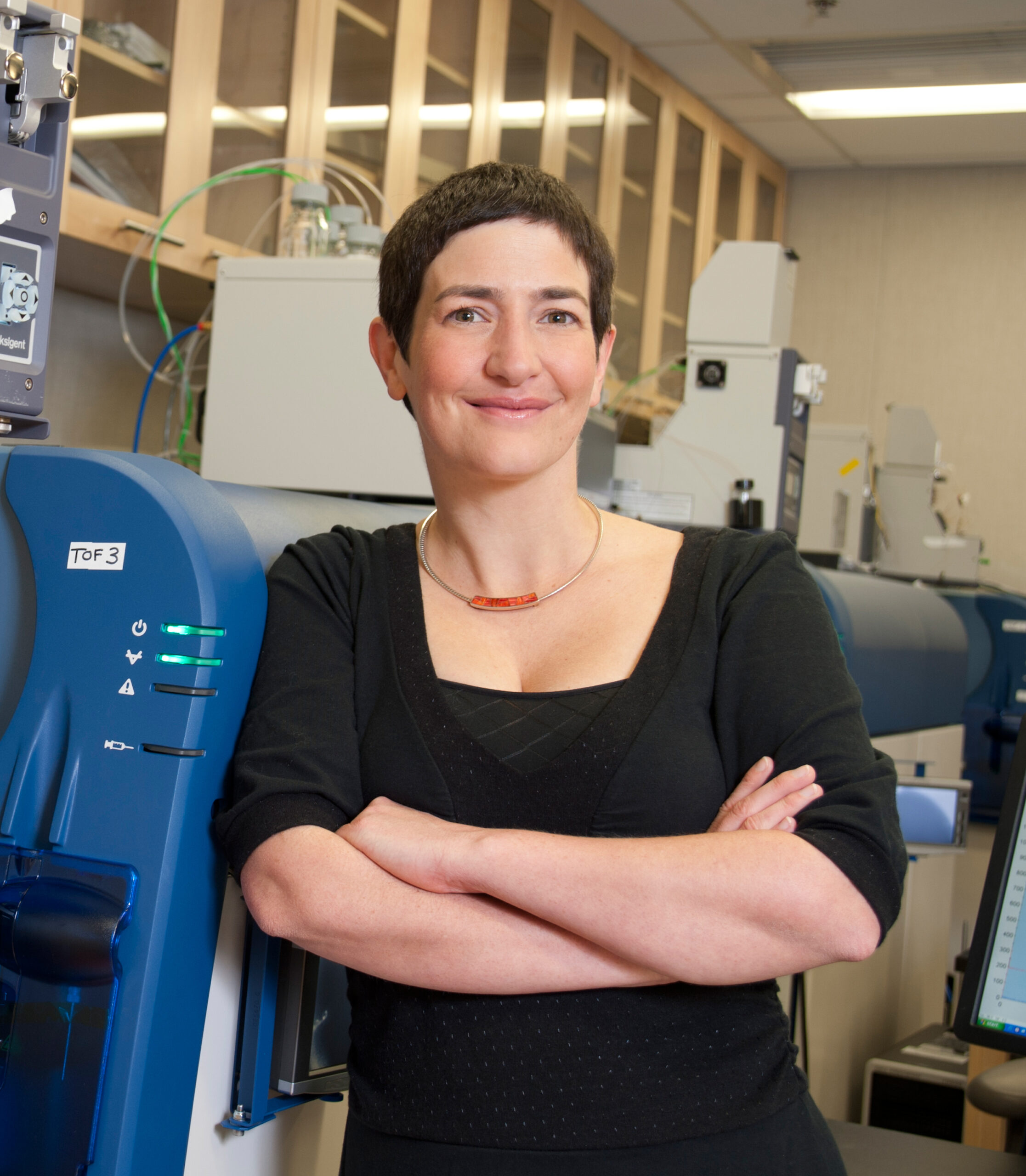Event details
Friday, February 21, 2025
8:00 AM – 6:00 PM
Leslie Dan Faculty of Pharmacy, 144 College St., Toronto, ON. Canada M5S 3M2
Symposium Abstracts
Trainees and PIs from PRiME-member labs are encouraged to submit a 350-word abstract. Labs are not restricted to one poster.
Agenda
8:00 – 8:45 am
45 mins
Breakfast, networking, poster set-up
Morning session I
Session Chair: Molly Shoichet
| 8:45 – 8:50am 5 mins | Welcome & land acknowledgement | Akshita Vincent PRiME Director, Strategy & Partnerships |
| 8:50 – 9:00am 10 mins | PRiME and Precision X | Molly Shoichet PRiME Scientific Director University Professor and Pamela & Paul Austin Chair in Precision & Regenerative Medicine |
| 9:00 – 9:45am 35 min + 10 min Q&A | Scientific keynote: Precision Medicine & Drug (target) Discovery | Bernd Wollscheid Professor, Head of the Institute of Translational Medicine, ETH Zürich |
| 9:45 – 10:05am 15 min + 5 min Q&A | Protein (mis)localization in human disorders | Mikko Taipale Anne and Max Tanenbaum Chair in Biomedical Research Associate Professor, Department of Molecular Genetics, U of T |
| 10:05 – 10:25am 15 min + 5 min Q&A | Dynamic Maps of Cellular Organization | Anne-Claude Gingras Vice-President of Research, Sinai Health Professor, Dept Molecular Genetics, U of T |
10:25 – 10:50am
25 mins
Coffee break & posters
Morning session II
Session Chair: Stephane Angers
| 10:50 – 11:10am 15 min + 5 min Q&A | Scalable tissue-engineered multicellular culture models for precision medicine | Alison McGuigan Professor of Chemical Engineering and Applied Chemistry, & Biomedical Engineering, U of T |
| 11:10 – 11:30am 15 min + 5 min Q&A | Systematic genetics reveals a modifier of a rare disease gene | Jason Moffat Program Head, Genetics and Genome Biology, SickKids Professor, Department of Molecular Genetics, U of T |
| 11:30am –12:10pm 40 mins 12 talks 3 mins each | Lightning talks by PRiME Fellows | Diaaeldin Abdallah (SickKids) Rana Faryad Ali (Sunnybrook) Pragnya Chakraborty (SickKids) Daniela Isaacs-Bernal (U of T) Idorenyin Iwe (Unity Health) Jiyoon Kim (U of T) Emily Majaesic (OICR) Vera Pieters (UHN) Abdullah Bin Shams (WCH) Grayson Tilstra (U of T) Liting Wang (OICR) Nadia Zafar (U of T) |
12:10 – 1:40 pm
90 mins
Lunch & posters
Afternoon session I
Session Chair: Igor Stagljar
| 1:40 – 2:25pm 35 min + 10min Q&A | Industry keynote: Targeted Therapies - Chemical Biology for Precision Medicines | John Tallarico Global Head, Discovery Sciences, Novartis Biomedical Research |
| 2:25 – 2:45pm 15 min + 5 min Q&A | Strategies to modulate the conformation and function of RNA with small molecules | Amanda Hargrove Professor of Chemistry, U of T Mississauga |
| 2:45 – 3:05pm 15 min + 5 min Q&A | AI-driven Design of Lipid Nanoparticles for mRNA Delivery | Bowen Li Assistant Professor, Leslie Dan Faculty of Pharmacy, U of T Canada Research Chair in RNA Vaccines & Therapeutic |
| 3:05 – 3:25pm 15 min + 5 min Q&A | Unlocking Material Designs with Smart Tools and Machine Learning | Frank Gu Co-director Self-Driving Lab Formulation, Acceleration Consortium Professor and NSERC Senior Industrial Research Chair in Nanotechnology Engineering |
3:25 – 3:50 pm
25 mins
Break & posters
Afternoon session II
| 3:50 – 4:50pm 60 mins | Industry Panel: Precision Medicine’s Translational Trajectory: Insights from Industry Innovators | John Tallarico (Novartis) Global Head, Discovery Sciences, Novartis Biomedical Research Emily Titus (Notch Therapeutics) Senior Vice President, Technical Operations, Notch Therapeutics. Rami Hannoush (Versant Ventures) Venture Partner, Versant Ventures Mike Cooke (AmacaThera) Co-Founder & CEO, AmacaThera Moderator: Parimal Nathwani (TIAP) President & CEO, Toronto Innovation Acceleration Partners (TIAP) |
| 4:50 – 5:00pm 10 mins | Awards Announcement | Carolyn Cummins PRiME Associate Scientific Director Associate Professor, Leslie Dan Faculty of Pharmacy, U of T |
| 5:00 – 5:05pm 5 mins | Thank you & closing remarks | Leah Cowen Vice-President, Research and Innovation, and Strategic Initiatives, U of T |
5:05 – 6:15 pm
70 mins
Networking reception
Keynote speakers

Scientific Keynote — Bernd Wollscheid, ETH Zürich
Professor, Head of the Institute of Translational Medicine, ETH Zürich
Bernd Wollscheid, Ph.D., is founder of DISCO Pharmaceuticals. He is a Professor of Molecular Health and Head of the Institute of Translational Medicine at the Department of Health Sciences and Technology at ETH Zürich, Switzerland. As the chairman of EC of the ETH domain Strategic Focus Area, “Personalized Health and Related Technology (PHRT),” he aims to bridge the gap between scientific discoveries and their practical applications in healthcare.
Bernd’s research team pioneers developing and applying next-generation technologies at the intersection of biology, chemistry, medicine, and bioinformatics. This research contributes to understanding how molecular nanoscale organization influences cellular function and opens up new opportunities for theranostics.
Bernd studied Chemistry and holds a Ph.D. in Molecular Immunology from the Max Planck Institute of Immunobiology in Freiburg, Germany. He performed post-doctoral research at the Institute of Systems Biology, Seattle, USA.

Industry Keynote — John Tallarico, Novartis
Global Head, Discovery Sciences, Novartis Biomedical Research
John Tallarico is currently Senior Vice President and Global Head of Discovery Sciences at Novartis Biomedical Research, a large multidisciplinary platform department supporting small molecule discovery and exploratory efforts in cell and gene therapies. With over 20 years at Novartis, he is an experienced leader in drug discovery and works to bring cutting edge discovery tools to bear on all therapeutic areas across Novartis. He is passionate about science and people, bringing energy and inspiration to challenging and ambiguous scientific problems.
John earned his Ph.D. with distinction in Organic Chemistry from Boston College in 1998. He then did Post-doctoral research as a Damon-Runyon Cancer Research Fellow at Harvard University and Harvard Medical School. In 2000, John joined the Department of Cell Biology at HMS as a Fellow, working in the nascent field of Chemical Genetics. In 2004, he moved to Novartis and has held various leadership positions at Novartis, including Vice President and Global Head of Chemical Biology & Therapeutics, and US Head of Chemical Biology and Therapeutics Department.
Industry Panelists

Rami Hannoush, Versant Ventures
Venture Partner, Versant Ventures
Rami Hannoush is a venture partner at Versant Ventures where he focuses on life science investments and biotech company formation efforts.
Prior to his current role, he was a general partner at Mubadala Capital where he led investments in early- and late-stage biotech companies. Rami brings over 18 years of R&D experience at both large and small biotech companies.
Rami was the Chief Executive Officer and a co-founder at EpiBiologics where he also served as its founding Chief Scientific officer. As a member of the R&D team at Genentech, he served in various leadership roles overseeing the advancement of multiple drug candidates in the areas of Immunology and Oncology with special emphasis on novel drug modalities.

Mike Cooke, AmacaThera
Co-Founder & CEO
Dr. Cooke earned his PhD in stem cell biology from the University of Durham (UK), focusing on methods for controlling cell fate. During his postdoctoral research in Molly Shoichet’s laboratory at the University of Toronto, he explored the use of a hydrogel (HAMC) in combination with neural stem/progenitor cells to repair stroke-induced brain damage in mice. His work successfully demonstrated that HAMC-enhanced cells could facilitate functional recovery in stroke-affected brains.
For over 15 years, Dr. Cooke and Dr. Shoichet have collaborated on commercializing innovative hydrogels, co-founding AmacaThera to bring these technologies to clinical applications. AmacaThera is built around a versatile hydrogel platform technology that can deliver a broad range of molecules. The company’s lead product aims to enhance post-operative pain management, with additional developments focused on oncology.
As AmacaThera’s CEO, Dr. Cooke has led the team to achieve significant milestones, including completing a Phase 1 clinical trial. AmacaThera has secured several rounds of financing totaling over US$12M. Additionally, Dr. Cooke recently completed a Global Professional Master of Laws (GPLLM) in business law at the University of Toronto Faculty of Law.His current research spans AI-powered nanomedicine formulation, climate-resilient water treatment technologies, and critical mineral recovery from waste. He is also the co-recipient of the 2023 NSERC Brockhouse Prize for Interdisciplinary Research for his work in developing innovative drug delivery vehicles in collaboration with clinicians.

Emily Titus, Notch Therapeutics
Senior Vice President, Technical Operations, Notch Therapeutics
Emily Titus obtained her PhD from the Institute of Biomaterials and Biomedical Engineering at the University of Toronto, where she used a combination of laboratory and bioinformatics approaches to define and interpret gene regulatory networks controlling embryonic stem cell fate decisions.
At Notch, she oversees the Technical Operations function, which includes Process and Analytical Development, Manufacturing Sciences, Engineering and Project Management.
Previously, she held the position of Vice President, Technology Advancement at CCRM, where she built cell reprogramming, genome engineering and pluripotent stem cell differentiation programs and led the company incubation program that culminated in the launch of Notch Therapeutics.

John Tallarico, Novartis
Global Head, Discovery Sciences, Novartis Biomedical Research
John Tallarico is currently Senior Vice President and Global Head of Discovery Sciences at Novartis Biomedical Research, a large multidisciplinary platform department supporting small molecule discovery and exploratory efforts in cell and gene therapies. With over 20 years at Novartis, he is an experienced leader in drug discovery and works to bring cutting edge discovery tools to bear on all therapeutic areas across Novartis. He is passionate about science and people, bringing energy and inspiration to challenging and ambiguous scientific problems.
John earned his Ph.D. with distinction in Organic Chemistry from Boston College in 1998. He then did Post-doctoral research as a Damon-Runyon Cancer Research Fellow at Harvard University and Harvard Medical School. In 2000, John joined the Department of Cell Biology at HMS as a Fellow, working in the nascent field of Chemical Genetics. In 2004, he moved to Novartis and has held various leadership positions at Novartis, including Vice President and Global Head of Chemical Biology & Therapeutics, and US Head of Chemical Biology and Therapeutics Department.

Parimal Nathwani, TIAP - Moderator
President & CEO, TIAP
Parimal Nathwani has over 15 years of experience in various aspects of the biotechnology industry including corporate finance, business development, transactions, intellectual property management, technology development and operations. He has been actively involved in forming and managing start-ups, preparing and executing on business plans, raising early-stage capital and in- and out-licensing activities.
Before joining MaRS Innovation, now Toronto Innovation Acceleration Partners (TIAP), Parimal was a healthcare analyst with a boutique investment bank, where he conducted equity research on publicly-traded biotechnology companies in Canada and the U.S. He has also led commercialization activities out of BC Women’s and Children’s Hospital as part of his role at the University of British Columbia’s Industry Liaison Office, and was a research scientist at a start-up biotechnology company involved in drug discovery targeting ABC Transporters.
Parimal received his MBA from Simon Fraser University and his M.Sc. from the University of British Columbia. He currently sits on the boards of TRIUMF Innovations, Zucara Therapeutics, and Vasomune Therapeutics, and is an observer on the board of Encycle Therapeutics.
Speakers

Mikko Taipale, University of Toronto
Anne and Max Tanenbaum Chair in Biomedical Research
Associate Professor, Department of Molecular Genetics, University of Toronto
Dr. Mikko Taipale is an Associate Professor in the Donnelly Centre and the Department of Molecular Genetics at the University of Toronto. He received his MSc in genetics at the University of Oulu, Finland (close to the arctic circle).
He then joined Asifa Akhtar’s lab in EMBL in Heidelberg, Germany and completed his PhD on chromatin regulation by histone acetylation. He did his postdoctoral training in Sue Lindquist’s lab at the Whitehead Institute. There, he focused on the client recognition mechanisms of Hsp90 chaperone and co-chaperones and on developing high-throughput protein/protein and drug/target interactions.
Since 2014, Mikko has had his lab in the Donnelly Centre and the University of Toronto. The Taipale lab is focused on diverse aspects of functional proteomics and genomics, including protein homeostasis, transcriptional regulation, disease variant phenotyping, and host/pathogen interactions.

Alison McGuigan, University of Toronto
Professor, Chemical Engineering and Applied Chemistry and the Institute for Biomedical Engineering, University of Toronto
Dr. Alison McGuigan is a Professor in Chemical Engineering and Applied Chemistry and the Institute for Biomedical Engineering at University of Toronto. She holds a Canada Research Chair in Tissue Engineering and Disease Modelling. She obtained her undergraduate degree from University of Oxford, her PhD from University of Toronto, and completed Post Doctoral Fellowships at Harvard University and Stanford School of Medicine.
Dr. McGuigan has made pioneering contributions to the engineering of tissue models to explore mechanisms of disease and regeneration. Her team exploits materials and engineering technologies to create artificial tissues in a dish which can be used to develop and discover new drugs, decide which drugs to give to which people, and potentially to predict which people are likely to get sick from specific diseases.
Dr. McGuigan has received numerous honors including being elected to the Royal Society of Canada-College of New Scholars, Artists and Scientists. a Fellow of the Canadian National Academy of Engineering and most recently she received an NSERC Arthur B McDonald Fellowship.

Jason Moffat, The Hospital for Sick Children
Program Head, Genetics and Genome Biology, SickKids
Professor, Department of Molecular Genetics, University of Toronto

Amanda Hargrove, University of Toronto
Professor, Department of Chemistry, University of Toronto Mississauga
Amanda Hargrove is a Professor of Chemistry at the University of Toronto, having moved from Duke University in July 2024. Prof. Hargrove earned her Ph.D. in Organic Chemistry from the University of Texas at Austin followed by an NIH postdoctoral fellowship at Caltech.
Prof. Hargrove’s laboratory focuses on developing small molecule probes to investigate the structure and function of RNA molecules relevant to human disease. The lab works to understand the fundamental drivers of selective small molecule:RNA recognition and to use this knowledge to functionally modulate viral and oncogenic RNA structures.
Recent honors include the RNA Society Elisa Izaurralde Award for Innovation in Research, Teaching, and Service, the Sloan Research Fellowship, the American Chemical Society Women Chemists Committee Rising Star Award, and the Cram Lehn Pedersen Prize in Supramolecular Chemistry. Prof. Hargrove serves as on the editorial advisory boards of ChemComm, Current Protocols, Medicinal Research Reviews and Supramolecular Chemistry.

Bowen Li, University of Toronto
Assistant Professor, Leslie Dan Faculty of Pharmacy, University of Toronto
Canada Research Chair in RNA Vaccines & Therapeutic
Dr. Bowen Li is an Assistant Professor in the Leslie Dan Faculty of Pharmacy at the University of Toronto and an Affiliate Scientist at Princess Margaret Cancer Centre. He holds the Tier 2 Canada Research Chair in RNA Vaccines and Therapeutics, and the GSK Chair in Pharmaceutics and Drug Delivery.
Dr. Li received his Ph.D. in Bioengineering from the University of Washington, Seattle, and then completed a Postdoc Fellowship under the guidance of Profs. Robert Langer and Daniel Anderson at MIT. His lab utilizes a range of interdisciplinary strategies, including combinatorial chemistry, high throughput platforms, and AI-driven design of experiments, to develop new generations of delivery systems for RNA medicines.
His work has led to over 60 publications in top-tier journals, such as Nat. Biotechnology, Nat. Materials, Nat. Biomedical Engineering, Nat. Medicine, PNAS, Sci. Adv., among others, as well as eight patents. His research has been recognized by the American Association of Pharmaceutical Scientists (AAPS) Emerging Leader Award, Biomaterials Science Emerging Investigator Award, Canadian Society for Pharmaceutical Sciences (CSPS) Early Career Award, CF Canada - Marsha Morton Early Career Investigator Award, ACS Rising Star in Biological, Medicinal, and Pharmaceutical Chemistry, Gairdner Early Career Investigator Award, J.P. Bickell Medical Research Award, Connaught New Researcher Award, and Baxter Young Investigator Award.

Frank Gu, University of Toronto
Co-director Self-Driving Lab Formulation, Acceleration Consortium
Professor and NSERC Senior Industrial Research Chair in Nanotechnology Engineering
Frank Gu is the Institute for Water Innovation Director at the University of Toronto, NSERC Senior Industrial Research Chair in Nanotechnology Engineering, and Professor in the Department of Chemical Engineering and Applied Chemistry. A leading expert in nanotechnology engineering, his research has driven advancements in functional nanomaterials for healthcare and environmental applications.
Gu’s research applies nanoscience to industrial challenges, including ocular drug delivery, medical devices, catalysis, and water treatment. His lab pioneered buoyant photocatalysts powered by sunlight for treating industrial wastewater and founded H2nanO Inc. to commercialize eco-friendly water treatment solutions. He has also developed nanomaterials for anterior ocular disease treatment, leading to long-lasting medicated eye drops and collaborations with medical device companies.
His current research spans AI-powered nanomedicine formulation, climate-resilient water treatment technologies, and critical mineral recovery from waste. He is also the co-recipient of the 2023 NSERC Brockhouse Prize for Interdisciplinary Research for his work in developing innovative drug delivery vehicles in collaboration with clinicians.
Our partners




Our sponsors


